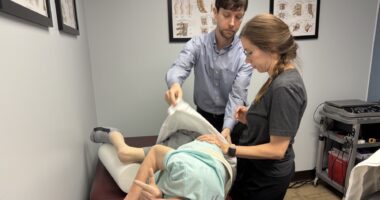FDA Grants Rare Pediatric Disease Designation to SRK-015 for SMA


The U.S. Food and Drug Administration (FDA) has granted the designation of rare pediatric disease to SRK-015, an investigational treatment for spinal muscular atrophy (SMA), its developer, Scholar Rock, announced.
This designation is given to therapies that are intended to treat serious or life-threatening disorders that affect fewer than 200,000 people in the U.S., mainly those younger than 18.
“This Rare Pediatric Disease designation along with the previously granted Orphan Drug Designation highlights the FDA’s recognition of the unmet medical needs of patients with SMA. We continue to aim to establish SRK-015 as the potential first muscle-directed therapy to address motor function deficits that persist despite the availability of SMN upregulators,” Yung Chyung, MD, chief medical officer of Scholar Rock, said in a press release.
SRK-015 is a monoclonal antibody that selectively binds to the precursor, or latent form, of myostatin, effectively preventing it from being converted into an active form in muscle tissues.
Myostatin is a growth factor mainly produced by skeletal muscle cells to inhibit muscle growth. By preventing the formation of the active form of myostatin instead of blocking its activity directly, SRK-015 is expected to improve muscle strength and patients’ motor function, and cause fewer side effects compared to other myostatin inhibitors.
A proof-of-concept, Phase 2 clinical trial called TOPAZ (NCT03921528) is currently assessing the safety and effectiveness of SRK-015 in children and adults with SMA types 2 and 3.
The study completed patient enrollment earlier this year and Scholar Rock is planning to announce six-month interim data, including safety and effectiveness data, later this year. Top-line data from the entire one-year treatment period of the study is expected next year.
During the study, participants were divided into three groups: those with SMA type 3 who are able to walk unaided, some of whom are receiving an approved SMA treatment and some of whom are not; patients with SMA type 2 or 3 who are not able to walk, who started receiving treatment after turning 5; and patients with SMA type 2 who started receiving treatment before age 5.
All patients will receive intravenous (into the vein) injections of SRK-015 at a dose of 20 mg/kg or 2 mg/kg every four weeks, depending on the group they were placed in, for up to one year.
The main goal of the study is to assess if SRK-015 can lead to clinically meaningful outcomes in patients’ motor functions. This will be determined based on the scores of several functional scales, including the Revised Hammersmith Scale (RHS) and the Hammersmith Functional Motor Scale Expanded (HFMSE). Additional study goals include assessing SRK-015’s safety and pharmacological properties.
A preliminary analysis of the therapy’s pharmacological profile based on data from 29 patients enrolled in the study, showed that SRK-015 interacted with the latent form of myostatin, increasing its levels up to 100 times in patients’ blood.
The analysis also showed that increases in the levels of latent myostatin observed in the four weeks following treatment in patients participating in TOPAZ were similar to those reported in healthy volunteers participating in a previous Phase 1 trial.
“We are encouraged by the progress of the TOPAZ Phase 2 trial and look forward to the interim read-out next quarter that will provide important insights into the potential of SRK-015 in patients with SMA,” Chyung said.
The post FDA Grants Rare Pediatric Disease Designation to SRK-015 for SMA appeared first on SMA News Today.

